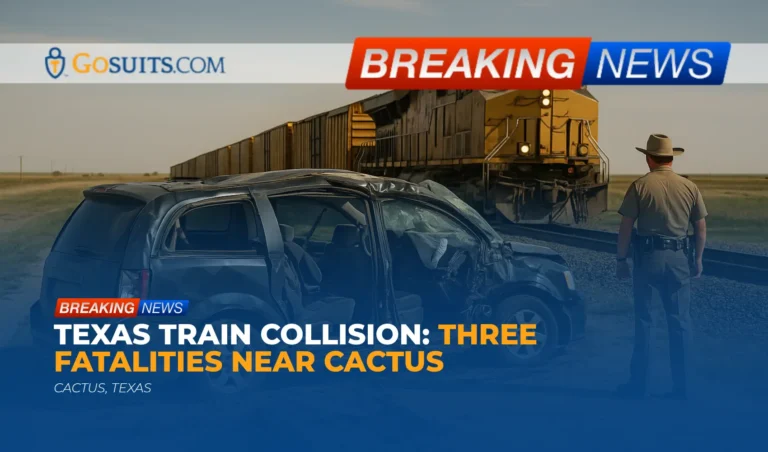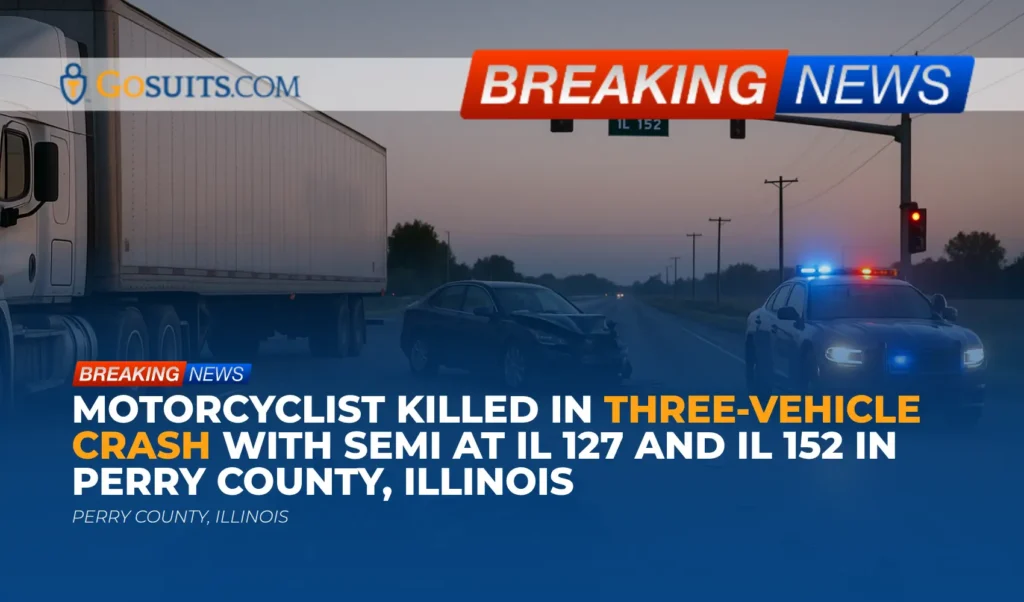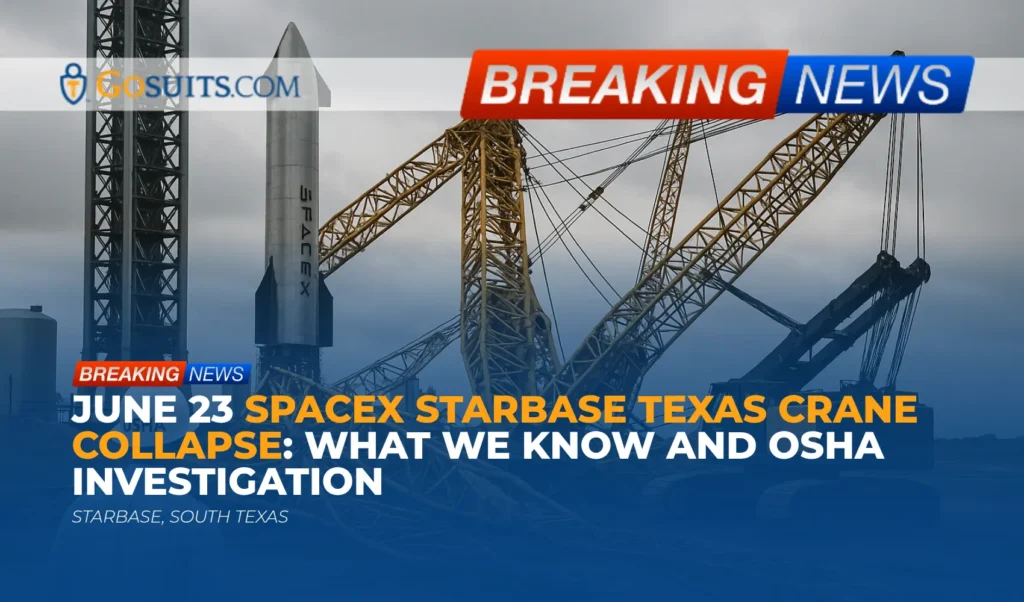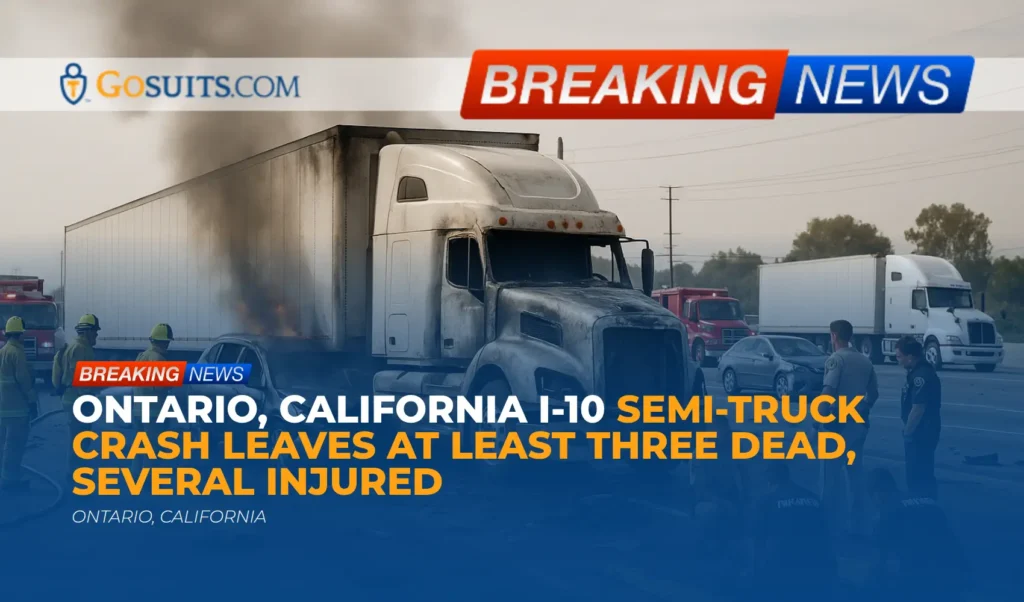Tragic Vehicle-Train Collision Near Cactus, Texas, Claims Three Lives
A devastating vehicle-train collision near Cactus, Texas, on Wednesday afternoon resulted in the deaths of three individuals. The Texas Department of Public Safety (DPS) reported that the incident occurred at approximately 2:44 p.m. on County Road E, roughly two miles south of Cactus.
According to DPS reports, a 2010 Chrysler Town and Country van was traveling east on County Road E when it attempted to cross a set of train tracks. Tragically, the van was struck on the passenger side by a northbound train.
The driver of the van, identified as 74-year-old Jose Rosales of Dumas, and two passengers, 23-year-old Eliseo Calel and 37-year-old Manuel Perez, both residents of Cactus, were pronounced dead at the scene. DPS confirmed that all three occupants were wearing seatbelts at the time of the collision.
Fortunately, no injuries were reported among the personnel on the train.
At the time of the incident, weather conditions were clear and dry, and the posted speed limit on the road was 75 mph. The Texas Highway Patrol is currently conducting a thorough investigation to determine the precise cause of this tragic collision.
Understanding the Legal Implications of Vehicle-Train Collisions
Vehicle-train collisions, while relatively infrequent, often result in severe injuries or fatalities due to the significant size and momentum of trains. These incidents can raise complex legal questions concerning liability, negligence, and the rights of victims and their families.
In the aftermath of such a collision, a comprehensive investigation is crucial to determine the factors that contributed to the accident. This investigation typically involves examining the actions of the vehicle driver, the train operator, and the railroad company. Investigators will also assess the condition of the crossing, including the presence and functionality of warning signals or gates.
Potential factors that may contribute to vehicle-train collisions include:
- Driver Negligence: A driver’s failure to yield to a train, distracted driving, impaired driving, or speeding can all lead to collisions at railroad crossings.
- Train Operator Negligence: Train operators have a responsibility to operate their trains safely and to adhere to all regulations. Negligence on the part of the train operator, such as speeding, failure to sound the horn, or inattentiveness, can contribute to accidents.
- Railroad Company Negligence: Railroad companies have a duty to maintain safe crossings, which includes ensuring that warning signals and gates are functioning properly. Negligence in maintaining crossings or failure to provide adequate warnings can lead to collisions.
- Malfunctioning Equipment: Mechanical failures, such as faulty brakes on the train or malfunctioning warning signals at the crossing, can also contribute to accidents.
- Visibility Issues: Obstructed views of the tracks due to vegetation, weather conditions, or the crossing’s design can increase the risk of collisions.
Establishing liability in vehicle-train collisions can be a complex process, often requiring the expertise of seasoned legal professionals familiar with personal injury and transportation law.

The Importance of Thorough Investigations in Personal Injury Cases
In the context of personal injury law, a thorough investigation is paramount. It is the cornerstone upon which a strong case is built, providing the necessary evidence to establish liability and pursue fair compensation for the injured parties or the families of those who have lost their lives.
A comprehensive investigation will typically involve:
- Gathering Evidence: Collecting police reports, witness statements, photographs and videos of the scene, and any other relevant documentation.
- Analyzing the Scene: Examining the accident site to identify any contributing factors, such as road conditions, visibility issues, or malfunctioning equipment.
- Reviewing Records: Obtaining and analyzing driver logs, train maintenance records, and any other relevant records.
- Consulting with Experts: Collaborating with accident reconstruction experts, engineers, and other specialists to analyze the evidence and provide their professional opinions.
The information gathered through a thorough investigation can help to establish the sequence of events leading up to the collision, identify the parties responsible, and determine the extent of the damages. This information is crucial for building a strong case and pursuing a just outcome for the victims.
Understanding Wrongful Death Claims
In situations where a vehicle-train collision results in fatalities, the families of the deceased may have the right to pursue a wrongful death claim. These claims seek to compensate the family for the losses they have suffered as a result of the death of their loved one.
Wrongful death claims can provide compensation for a range of damages, including:
- Funeral and Burial Expenses: The costs associated with the funeral and burial services.
- Medical Expenses: Any medical expenses incurred by the deceased as a result of their injuries prior to their death.
- Lost Wages and Future Earnings: The income that the deceased would have earned over their lifetime.
- Loss of Companionship and Support: The emotional and financial support that the deceased provided to their family.
- Pain and Suffering: The emotional distress and suffering experienced by the deceased and their family.
The specific damages that can be recovered in a wrongful death claim vary depending on the laws of the state in which the accident occurred. It is essential to consult with an attorney to understand the specific legal options available.

Commentary from Gosuits Dumas, Texas Personal Injury Attorney
This tragic vehicle-train collision near Cactus serves as a stark reminder of the potential dangers at railroad crossings. The loss of three lives underscores the importance of exercising extreme caution when approaching and crossing train tracks.
The investigation conducted by the Texas Highway Patrol will be crucial in determining the factors that contributed to this devastating accident. Understanding the sequence of events, the actions of all parties involved, and any potential safety deficiencies is essential to ensure accountability and prevent similar tragedies in the future.
From a personal injury perspective, this incident highlights the complex legal issues that can arise in vehicle-train collisions. Determining liability often requires a thorough investigation and analysis of multiple factors, including driver behavior, train operation, and the condition of the crossing. Families who have lost loved ones in such accidents have the right to seek justice and compensation for their losses.






